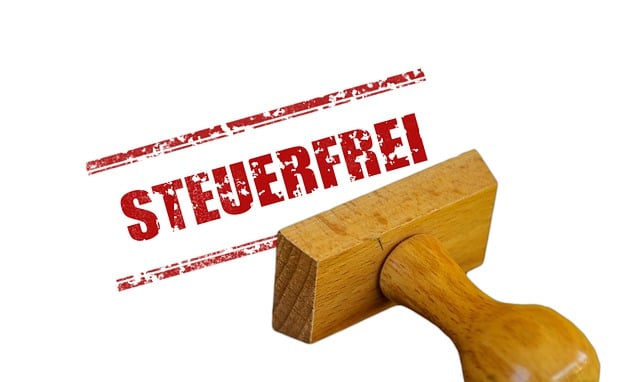Securing an equipment loan involves understanding lenders' approval processes, with credit unions offering a holistic approach by assessing credit history, business stability, and equipment value as collateral, streamlining the process compared to traditional banks. Business owners should weigh personalized service and rates against a broader product range and established track records when choosing between credit unions and traditional lenders. The loan approval process includes initial consultations, document gathering, creditworthiness review, and decision-making, with credit unions providing personalized guidance and conditional/final approval letters. Key factors considered include borrower creditworthiness, equipment details, business health, proposed use, and offered collateral, impacting loan terms and interest rates. Avoiding common mistakes like insufficient preparation and misunderstanding terms is crucial, with credit unions requiring detailed plans, financial statements, and tax returns to ensure accurate applications and avoid financial burdens.
Equipment loans are a vital lifeline for businesses seeking to acquire machinery and technology. Understanding the approval process is key to securing funds efficiently. This comprehensive guide delves into the intricacies of equipment loan approvals from top lenders, including credit unions and traditional banks. We explore the benefits of each, break down the step-by-step application process, uncover crucial evaluation factors, and highlight common mistakes to avoid, offering valuable insights for savvy business owners. Discover how credit unions can provide a unique advantage in securing financing for your next big purchase.
- Understanding Equipment Loan Approval: A Comprehensive Guide
- Credit Unions vs Traditional Lenders: Which is Better for Your Business?
- The Step-by-Step Process of Securing Loan Approval
- Key Factors Lenders Consider When Evaluating Loan Applications
- Common Mistakes to Avoid During the Equipment Loan Approval Process
Understanding Equipment Loan Approval: A Comprehensive Guide

When it comes to securing an equipment loan, understanding the approval process is key. This journey involves several critical steps that vary slightly between lenders, but certain constants remain. The primary goal for both borrower and lender is to ensure a low-risk transaction.
Credit unions, known for their community focus, often take a holistic approach. They’ll assess your credit history, business stability, and the value of the equipment as collateral. This comprehensive evaluation allows them to make informed decisions, providing a smoother loan approval process compared to traditional banks.
Credit Unions vs Traditional Lenders: Which is Better for Your Business?

When considering equipment loan options, business owners often grapple with the choice between credit unions and traditional lenders. Both have their unique advantages and considerations, making the decision a crucial one for your business’s financial health. Credit unions, known for their cooperative structure, offer a more personalized approach to lending. As not-for-profit organizations, they prioritize member satisfaction and often provide competitive interest rates along with flexible loan terms. This can be particularly beneficial for small businesses seeking a supportive financial partner.
On the other hand, traditional lenders like banks have extensive resources and a proven track record. They offer a wide array of loan products, including equipment financing, with potentially lower borrowing limits. However, their focus on profit margins might lead to higher interest rates and less flexibility in terms and conditions. Traditional lenders also tend to require more extensive documentation and strict credit checks, which could be a challenge for startups or businesses with limited financial history. Thus, understanding the unique offerings of each is key to selecting the best equipment loan approval process for your business needs.
The Step-by-Step Process of Securing Loan Approval

Securing loan approval for equipment financing involves a clear, structured process that varies slightly between lenders but generally follows the same framework. It begins with an initial consultation where potential borrowers discuss their needs and financial situation with a lender’s representative. This step is crucial as it sets the tone for the entire application and ensures both parties understand the borrower’s objectives and the loan’s scope.
After this meeting, applicants will need to gather essential documents, such as business and personal financial statements, tax returns, and identification documents. These materials are submitted to the lender who then conducts a thorough review to assess creditworthiness, verify information, and decide on the loan amount and terms. Credit unions, known for their community focus, often offer more personalized interactions during this phase, providing guidance and addressing any concerns. Once approved, the lender will provide a conditional or final approval letter outlining the agreed-upon terms, which can be used to secure equipment purchases.
Key Factors Lenders Consider When Evaluating Loan Applications

When it comes to equipment loan approvals, lenders—including credit unions—take a comprehensive look at several factors before making their decisions. These include the borrower’s credit history and score, demonstrating a strong ability to repay the loan with financial statements and tax returns. Lenders also assess the type of equipment being financed, its expected useful life, and the borrower’s experience in operating similar equipment.
Additionally, lenders evaluate the business’s overall financial health, market position, and growth prospects. They may request detailed information about the proposed use of the equipment, ensuring it aligns with the lender’s guidelines and that the borrower has a solid plan for repayment. Other considerations include collateral offered against the loan, which can significantly impact the terms and interest rates extended to the borrower, especially in credit unions known for their community-focused lending practices.
Common Mistakes to Avoid During the Equipment Loan Approval Process

During the equipment loan approval process, borrowers often make mistakes that can delay or even deny their applications. One common error is insufficient preparation. This includes failing to gather all required documents and providing outdated or inaccurate financial information. Credit unions typically require detailed business plans, financial statements, and tax returns, so ensuring these are up-to-date and complete is vital.
Another frequent mistake is not understanding the loan terms and conditions. Borrowers should carefully review the loan agreement, asking questions if anything is unclear. Neglecting to discuss interest rates, repayment schedules, and collateral requirements can lead to unforeseen financial burdens. Credit unions offer personalized services, so leveraging their expertise to clarify these aspects beforehand can help avoid potential pitfalls down the line.






